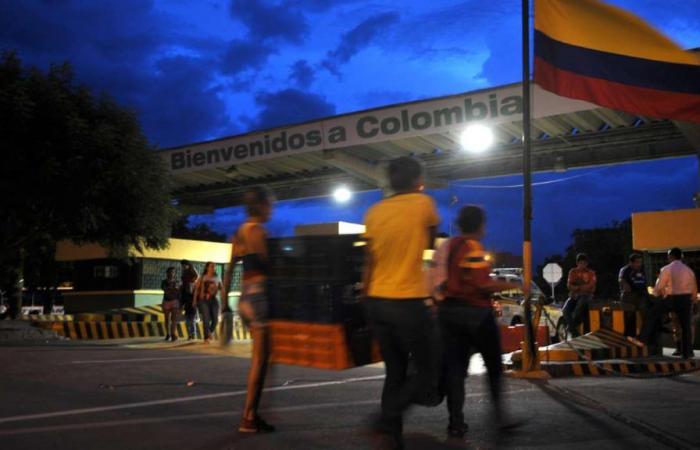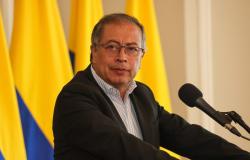Colombia has welcomed nearly three million migrants from Venezuela.
Photo: Óscar Pérez
On April 17, the Biden administration reinstated sanctions on Venezuela’s oil and gas sector after Maduro broke his promise to hold free and fair elections.
Almost 47,000 Venezuelan migrants attempted to enter the United States irregularly in December 2023. An exponential increase compared to the nearly 6,000 migrants registered the previous year. Venezuela went from being the sixth South American country of origin of migrants arriving in the United States to the second. Last year alone, 252,000 Venezuelans crossed the Darien, representing more than 60% of the total number of migrants, a clear contrast to the 3,000 Venezuelans who crossed between 2010 and 2021. It is no coincidence that migration is now one of the most critical issues in the upcoming US elections, with 48% of Americans citing irregular migration as their main concern. If the United States wants to manage Venezuelan migration, it needs Colombia’s help to do so.
More than 2.8 million Venezuelans are in Colombia today, and probably more will come in the future. Colombia is by far the main destination of the Venezuelan diaspora. Its policy of reception, regularization and integration in recent years, praised by the international community, has placed the country at the forefront in Latin America. However, after two years with the new government of Gustavo Petro, Venezuelan migration has lost strength among the new administration’s priorities.
Colombia earned regional recognition for leading a society in which migrants had the same opportunities as Colombian citizens thanks to the continuous efforts of different governments. The administration of Juan Manuel Santos structured the humanitarian response. Iván Duque’s government made progress in the registration, identification and regularization of more than 62% of Venezuelan migrants with its historic policy: the Temporary Protection Statute for Venezuelan Migrants (ETPV). President Gustavo Petro and his government are now responsible for the challenge of long-term integration.
Other countries, such as Peru, Ecuador and the Dominican Republic, began similar regularization processes after the Colombian experience with the EPTV. However, to date, more than 500,000 Venezuelan migrants remain pending regularization in Colombia. Now, without Colombia’s leadership in the regional migration agenda, regularization efforts throughout Latin America are hanging in the balance.
Regularization benefits Venezuelan migrants, refugees, host communities and Colombia’s economy. The Bank of the Republic estimates that the regularization of Venezuelans would increase potential GDP by more than 0.15 percentage points annually. In other words, for every dollar that Colombia invests in integrating migrants, it can obtain up to two dollars of benefit for society.
So why did regularization efforts stop? What changed? Geopolitics. Most of the time, migration is more of a foreign policy issue than a domestic issue. Unlike the Duque administration, Venezuelan migration was not among Petro’s priorities for his foreign policy agenda.
Petro had his own priorities for Colombia’s foreign policy: “Total peace,” climate change, and normalization of Colombia’s relationship with Venezuela. Since the beginning of his government, Petro has made five official visits to Venezuela, almost as many as Santos in eight years of government (eight visits from 2010 to 2018) and a marked contrast to Duque (zero visits from 2018 to 2022).
However, the upcoming elections in Venezuela could drastically change the scenario. A possible (and unjust and undemocratic) victory for Maduro could cause many millions more Venezuelans to leave the country. And when you can’t vote with your hands, you vote with your feet. Petro fears it. Biden too.
After almost two years without official progress on the issue, two months ago, the Foreign Minister of Colombia, Luis Gilberto Murrilo, stated that the country is preparing another massive regularization process for more than 600,000 migrants. Murillo highlighted that more than 80% of migrants in Colombia want to stay, but welcoming them requires more resources.
Here is the difference. Successfully integrating Venezuelan migrants into Colombian society is much better for the United States than creating physical and administrative barriers for migrants. If the United States wants to stop Venezuelan migration, it needs to financially support Colombia’s regularization efforts. Between sanctions and unfair elections, the United States’ best strategy to manage Venezuelan migration is Colombia.
The current crisis on the southern border of the United States has shown that the “I can do it alone” strategy has its limits. Managing American migration increasingly requires the cooperation of other countries. The United States cannot dictate how effectively it can expel and return migrants deemed unfit to remain in the country. As the Migration Policy Institute states, these policies require the collaboration of other countries, especially amid the diverse influx of migrants from countries with which the United States does not maintain official diplomatic relations, such as Venezuela, Cuba and Nicaragua.
Thus, instead of applying mass deportation or containment at the border, Colombia offers a different approach. Regularize millions of migrants from Latin America in Latin America. Colombia can become a global example of long-term regularization and integration. It can show the world that it is possible to positively welcome migrants.
The best thing for Petro is that the stars are aligned in his favor. Regularizing migrants is by far the best option for Petro. It is economically positive for Colombia. It’s a foreign policy negotiating card with Biden in a critical election year for the United States that Petro can later use for his climate change and total peace goals, especially after recent protests showed widespread discontent with his government.
Regularization helps reduce social conflicts and, sadly, to be honest, it also helps the Venezuelan government (the greater the number of people outside the country, the less pressure on the services of a State that does not have the capacity to provide them). For Biden, successfully managing Venezuelan migration in the middle of an election year would demonstrate that the administration listens to voters concerned about irregular migration. Everyone wins.
* Specialist in public administration and migration, Columbia University.






